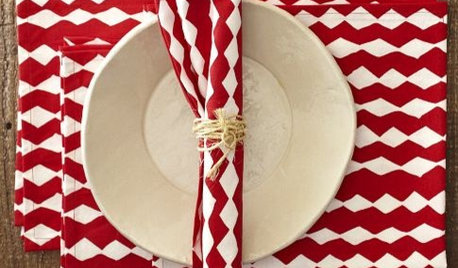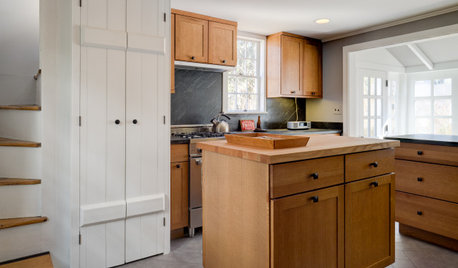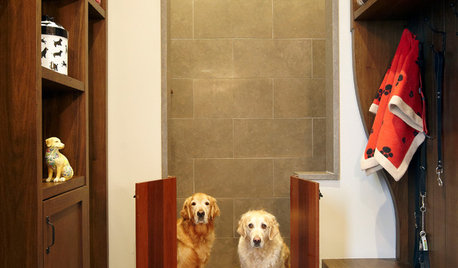Online/Catalog Retailers - who's good, who to avoid?
Was just flipping through an old post ("Websites that make you cringe" - link at end) and it left this neophyte feeling like there's a secret list of which retailers to hail as godly, and which to mock.
Is there such a list of the good, the bad, and the ugly, or perhaps another thread discussing it? Would love to know what sort of criteria retailers are judged against to determine quality. I would assume selling invasives or diseased plants is a no-no. What else should one look out for when deciding who to purchase from?
I'll admit I get some of the catalogs/emails from companies likely topping the "ugly" list (Michigan Bulb seems to be universally hated around here, not sure why?) but so far I use them for window shopping and ideas, then do research, then purchase plants and seed locally.
(I personally would love to see websites/catalogs that can trace the "bloodline" of their plants; where it originates from, who created the cultivar, or when & where a "wild/open pollinated" specimen was collected to be propagated for sale, and how it has been propagated since...)
link to thread mentioned above: http://forums.gardenweb.com/discussions/3258754/websites-that-make-you-cringe?n=44
Comments (19)
WoodsTea 6a MO
6 years agoI get most of my plants from a Missouri native plant nursery (http://mowildflowers.net) that brings a truckload of different things into Kansas City a few times a year (they also ship, but I've never needed that). I know that they source as locally as possible.
After that my next favorite is http://www.santarosagardens.com. They do a good job of packing plants for shipping, and almost everything I've gotten from them has been in good condition and has done reasonably well in my gardens (except where I've sited them badly). They also have big sales a couple of times a year.
For seeds I have used http://www.kansasnativeplants.com, whose sourcing is mostly within a hundred miles of my house, and also https://www.prairiemoon.com.
One other interesting site is http://izelplants.com. They're an online retailer that sources from different wholesale native plant nurseries, although everything I've bought from them came from Sunshine Farm & Garden in West Virginia. I did an order of all bare root plants in the spring of 2016, but the deliveries were held up (winter went late apparently?) and I didn't get the plants until May. At least half of what I planted didn't make it through the hottest June here since 1936. In retrospect it would have been better to pot them up and wait for fall, or even the following spring. I haven't ordered from Izel since based on that experience, but I would like to give them another try at some point.
albert_135 39.17°N 119.76°W 4695ft.
6 years agoWe've no feel for how current it is but his one was once quite popular. Guide to Gardening by Mail, Mail Order Gardening, and Catalogs -
(Jay/Jax FL/Zone 9a)
6 years agoThanks for making this thread because I've been wondering the same thing!
If anyone knows of some based in the Southeast (especially Central&North Florida or southern Georgia) they have good experiences with I'd be interested. A lot of the ones I see being suggested end up being further North (thanks Woodstea for listing your second favorite, which is in Florida).
[Also this isn't a native nursery but for others who live near me: I did buy the nativars 'Rising Sun' redbud and 'Florida sunshine' yellow anise from here http://www.wilsonbrosgardens.com/ (Georgia location) and was pleased. They both were packed well and came healthy in late May/early June and looked more like a plant I find at a nursery than ones I've gotten via mail in the past.]
User
6 years agolast modified: 6 years agoI ordered from www.easywildflowers.com last year. I got the plants in 3 days, they were packaged nice, well rooted and good sized, reasonably priced. He sells both seeds and plants.
edit to add: I just remembered. He sent the plants before he got my money order.
Jay 6a Chicago
6 years agoMissouri Wildflowers is very good. You can tell they really love, and care for plants. They put plants with deep roots in tall pots, and I have never gotten anything from them that was rootbound. Prairie Nursery not so great. Almost everything I've ordered from them came rootbound. I received 3 Royal Catchfly from them that were in short pots and extremely rootbound. They didn't grow much, if at all, the first year because of the roots. I would say it would be easier if you just post threads stating what you're looking for, and then members can tell you the best place.
kamereone thanked Jay 6a Chicagokamereone
Original Author6 years agoLots of great info, thank you everyone! Prairie Nursery was the only one I had heard of (just got their catalog the other day, actually) so I'll have to check out the others!
Jay 6a Chicago
6 years agoPrairie Nursery does have a nice selection, I'll give them that, but almost every plant they've shipped me has been severely root bound. Prairie Moon website is excellent. They have an even much,much, larger selection.
sonni1
6 years agoFor Jay in Jax - Mail Order Natives in Lee, FL has a great selection. Every order I've placed with them was correctly filled, quickly shipped and arrived in excellent condition.
Skip1909
6 years agoI ordered 8 Leadplant from Prairie Nursery in late march, and they were barely more than seedlings upon arrival at the end of April. Not root bound at all, in fact a lot of the soil fell out of the pots during shipping. They've looked really pathetic in my garden bed, but I'm hoping they are building roots, and put on a lot of next year. Half of them are barely alive and the other half have only grown a tiny amount. For comparison, the Coneflower seeds I threw on the ground in mid July and then ignored after 2 weeks have grown into plants that are twice the size of the Leadplant. It could be my climate or soil though, leadplant is not native to my state.
I ordered a ton of seeds from Prairie Moon, I'll report back in the spring on my germination rate.
There's a local place here that gets their perennials from a wholesaler- Quality Greenhouse in PA, and those plants (moss phlox and Baptisia australis) have done really well for me.
There is a land trust not too far away here in NJ that grows and sells natives, many of which were originally present on the land. I plan to visit them next year for plants. Maybe people can find something similar near them?
WoodsTea 6a MO
6 years agoskip1909, leadplant is slow to establish. Mine were single-stemmed and rather pathetic looking for the first 2-3 years. This year I got some good blooms, but I suspect it'll be at least another year or two before they really start to fill out.
Jay 6a Chicago
6 years agoI don't have anything nice to say about Izel. They were the only nursery where I could find the native Astilbe biternata. They won't let you order one or a few plants. You have to order a minimum of 7 plants, which is a lot more expensive. They came bare root, and they all showed new growth. I lost all 7 that year. 3 never grew, 2 just withered and died, and 2 struggled for a few months, and then vanished. I won't risk buying from them again. They have a really cool selection, and some hard to find plants. I tried contacting them and letting them know how disappointed I was, but never got any feedback from them. I was hoping they would send me a few replacements.
Toronado3800 Zone 6 St Louis
4 years agoCold Stream Farm Review:
When I was getting started I ordered from the Ty Ty nursery folks, Arbor Day and even E-Bay before I stumbled into the likes of Musser Forests, Forest Farm and others. I've received plenty of plants which ended up not making it, more that did from all the above and they all had some life!
Finally this year, the third time I ordered a hundred metasequoia bare root seedlings I had a bad experience. Last two times from Musser they showed up and every darned one leafed out. They were for giveaways so I don't know how many made it but they all leafed out.
This time Musser was out so I paid slightly more and ordered from Cold Stream Farm. Oops. Some shipped without even buds, as of the end of May here 60 or so haven't leafed out at all. Most of the ones which have leafed out did not do so from the top. Something, probably cold, went wrong with these trees.
After weeks of picture trading of trees in pots the dishonest or stupid crooks at Cold Stream became concerned the dead sticks were in pots and offered me possible credit on the non containerized ones or something illogical.
So shame on you Cold Stream Farm. Hire a better person to answer questions or SOMETHING. Even a "tough luck buddy" reply would have been more logical.
Jason Fleming
4 years agoOne of the seed sellers' stock was bought out by a third party but the name of the company was not changed. Apparently a lot what has been for sale on that site has been quite old stock. I spent quite a bit on an ounce of Delphinium virescens, Prairie Larkspur, and the seed was old and dead. I also bought a pound of Adonis aestivalis and it was all dead. I don't think I got any results from anything I bought from that company except for Heavenly Blue morning glory, although even those seeds seemed really old. They make a big deal about using mylar packaging but some species, especially those of the Ranunculaceae family, tend to have short lifespan. Really, a responsible company will list the age of each species' seed on its website.
So far, the only place I've seen do that is Sheffields. I haven't ordered from that company yet because I just don't have any money at the moment. One knock against them is that they sell some rare seeds for high prices that are so old I can't see how they'll germinate, including seeds from the 1990s. Some species will last a long time, like Moth Mullein, but some others may only last six months (aster, goldenrod). However, at least they make the important effort of disclosing the age of the seed!
A Western seed site that sells mainly native seeds sold me a pound of a tall native delphinium and a pound of a shorter native delphinium. I have no plants from either, although it's possible that climate difference is to blame. Nonetheless, the germination rate on the seed for the tall species was said to be around 35%. With storage it may have dropped further. They did warn me before I paid for the order about that, though, which was good business. Seed sellers really should list the approximate lifespan of each species' seed on their website, so people will know to avoid old seed from some species. This kind of transparency will give people an incentive to shop there.
Some species are hard to grow so it's not always the fault of the seed seller. But, that first company I mentioned seems to be selling very old stocks, along with perhaps some cheap easily-located annuals in bulk.
The issue of old dead seed isn't just a problem in the US. A UK paper published an article where it said there were problems with corn poppy and yellow rattle seed having poor viability or being completely dead. I bought corn poppy (Shirley type) from wildseedfarms and had excellent results.
So, far, I can recommend Prairie Moon, Wildseedfarms, Native American Seed (seedsource), and the Irish site Seedaholic. I'm sure there are other good seed sources but I haven't tried all that many. I have had very good results from seed purchased from those four companies although I have also had some duds. The duds were probably the result of trying to grow plants in the wrong conditions, like me trying to grow Astragalus, Dalea, Ipomopsis, and Amorpha (leadplant) in heavy moist clay loam. I had plenty of success, for example, with Ipomopsis in rocky places where water would never pool after a heavy rain. Other gravel areas where water would pool killed the plants after the first year. Any place that didn't have rocky soil... the plants barely grew, if at all. The difference between the plants thriving and not growing at all, depending on the spot/soil was tremendous. It is a fairly picky plant. The ones in front of my house where the soil is full of lava rock got very big, even though it's clay and we had a record amount of rainfall this spring. Not a single plant grew in the meadows proper, even though the soil had been freshly tilled. Too much moisture I suppose.
I'm not sure I got any sprouts from the two packets of Poke milkweed (it's hard to know for sure because the seedlings look like Purple milkweed I guess and I planted that as well as Spider milkweed and Sullivant's) but pretty much every other packet I bought from Prairie Moon last winter grew, although some plants were very difficult to keep going (like Turtlehead!). Packets are a good way to figure out which species really should be purchased as small plants or plugs — or which should be sown in situ or into large pots (rather than small peat cups). For instance, I had poor results growing Liatris ligulistylis in peat cups and pots, as well as in spots in the ground I transplanted them to. However, one that I moved to a 6" plastic pot rather late in the season is now thriving. Plants are sometimes very picky. Perhaps I got the right soil mix. It could also be that I used Osmocote in the pots and not with the peat cups/pots. Maybe ligulistylis won't grow without fertilization.
I also bought a pound of Adonis aestivalis from the Cactus Store and, unlike the seed from the first company I mentioned, it wasn't all dead. So, I will likely be shopping from them again. I also got some Chinese columbine from them and got some plants.
There is another company that was very disappointing. It put out price lists that seemed excellent but the actual prices were much higher and the stock was very poor. I had planned to get a bunch of different species from them but all of the interesting ones turned out to not be in stock. Don't get your hopes up beforehand. Verify that companies actually have things in stock. A Prairie Moon employee, though, told me that they keep their website up-to-date with stock, so for some companies this may be less of an issue.
Another site listed some rare species, like Indian paintbrush species, in actual real bulk quantities but when I called them they told me it came mixed with grasses. So, in reality, you might be getting mostly grass seed. Another site has been listing Indian Paintbrush for years but it has been Out of Stock for at least the last three years, since I've been checking.
Another site uses heavily doctored (Photoshop collage) photos to sell its seed mixes! I have all of the screenshots and have been planning to post an exposé because that kind of conduct is unacceptable. It's bad enough that Ebay allows so many doctored photos without a company's actual website being full of them.
Jason Fleming
4 years agoThere is also a seed company that sells packets of butterfly milkweed in Lowes or Home Depot. I don't remember the company's name but the packet border color is blue as I recall. But, the seed comes with a purple clay-like coating. It seemed like a gimmick when I bought the packets but I have discovered that the germination speed and germination percentage are both excellent. The price per ounce is very high, when compared with bulk but for small plantings these seeds seem to be foolproof. Unfortunately, the company does not list the ecotype and there is a wide variety of butterfly milkweed ecotypes since it has a huge natural range. One website showed a nearly red-flowered ecotype and I would really love to get my hands on seed for that! The flowers of the seed from the company I have been describing are yellow-orange (very yellow-toned orange), although soil can affect flower color. Ipomopsis I had growing in one spot had intense blood red flowers and the same seed lot was used elsewhere and plants had weakly-colored more orange-toned flowers. As with Ipomopsis, I have found that my butterfly milkweed seed likes clay as long as it's cut heavily by gravel. I've had it grow in plain clay but the growth is much slower. There are large brilliant-flowering plants growing in the heavy clay loam I have in my area but I can't manage to get any seeds because the people get out their mowers and cut them down every season. I've not seen even in a single plant in any of the locations manage to form seed pods before it is mowed down.
Jelitto sells "gold" seeds that are treated with a coating to speed germination and to increase the germination percentage. I haven't tried them buy for very fussy species, like Aconitum and Pasque Flower — i.e. Ranunculaceae, that seems the way to go. Jellito's prices are quite high for some items but actually quite competitive for others. I think that company has said it has quite good storage facilities so paying extra for better storage may be a good idea for some seeds that are sensitive to storage conditions.
Jason Fleming
4 years agoOh, I forgot to mention that I bought some seed from Vermont Wildflower Farm and had good results with the New England Aster so I can recommend that place, too. The prices are on the high side for a lot of species but the shipping cost is also lower than some places. I've read that aster and goldenrod seed can have poor longevity (as little as six months) so getting so many plants from the New England Aster seed was a good result. I didn't get any plants from the Red Columbine seed I bought from that company and sowed, though. But, New England Aster, I've discovered, grows extremely well in my climate/soil/conditions and columbines are considerably fussier (only the McKana hybrid seems to have much oomph for me). So, the seed was probably not the issue, just where it was sowed.
Some places may buy from multiple wholesalers, though, and sell the seed on so the quality may vary from the same company. Also, if some species' seed doesn't sell so well it may be old from sitting around. I have the feeling that some deep discounts on pounds of certain species from a certain company may be due to viability and age. Even a very low price for a pound of dead seed is too much to pay.
It has been my experience that matching the species with the conditions/soil/maintenance regime is critical. The best-quality seed there is won't matter if the species doesn't thrive in your conditions. But, of course, places selling dead seed are a problem, too.
Jason Fleming
4 years agoI also had good results from Monarda fistulosa (Bergamot) from Vermont Wildflower Farm. I tried to edit my post above but when I clicked Submit it wouldn't update.
















gardengal48 (PNW Z8/9)